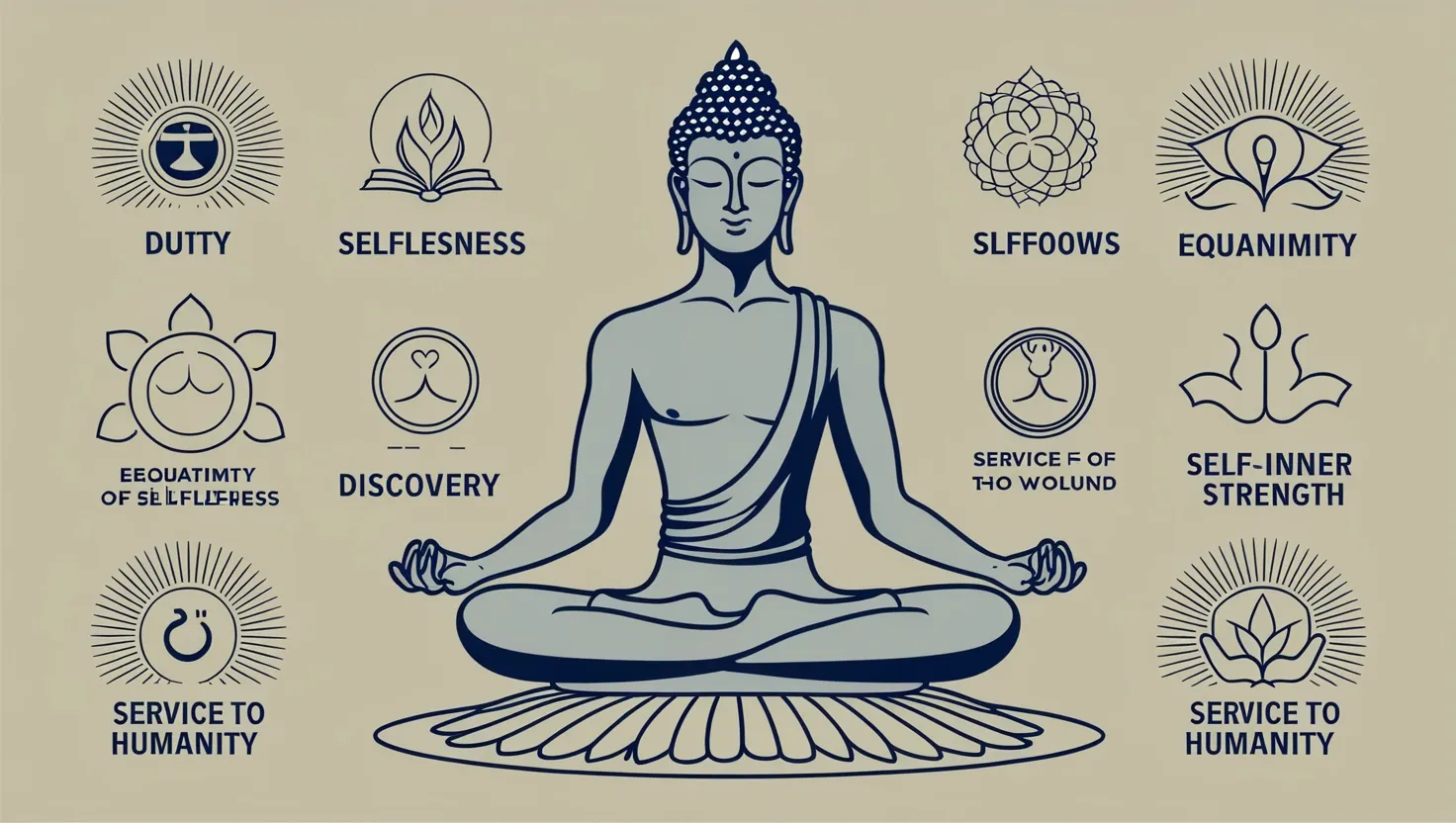The Fragrant Debate: Garlic and Onions in Hindu Cuisine and Culture
In the colorful world of Hindu cuisine, there’s a simmering debate that’s been going on for centuries. It’s not about spice levels or cooking techniques, but about two humble ingredients that most of us take for granted: garlic and onions. Yep, you heard that right! These flavor powerhouses are actually quite controversial in some Hindu circles.
Now, before you start wondering if I’ve lost my marbles, let me explain. This isn’t just about personal taste preferences or someone having a vendetta against bad breath. It’s a fascinating blend of spiritual beliefs, health considerations, and cultural traditions that have been simmering in the pot of Hindu culture for ages.
Let’s dive into this aromatic controversy, shall we? First things first, we need to talk about Ayurveda. No, it’s not a new yoga trend or a fancy spa treatment. Ayurveda is an ancient Indian system of medicine and wellness that’s been around for thousands of years. It’s like the wise grandma of health practices, full of insights that modern science is only just starting to catch up with.
In Ayurveda, everything in the universe, including food, is categorized into three gunas or qualities: sattva, rajas, and tamas. Think of these as the three musketeers of existence, each with its own personality and effects on our body and mind.
Sattva is the good guy, promoting purity, harmony, and balance. It’s like that friend who always has their life together and makes you want to be a better person. Rajasic foods are the party animals, stimulating and energizing, but potentially leading to restlessness. And then we have tamasic foods, the couch potatoes of the food world, associated with dullness, lethargy, and even negative emotions.
Now, here’s where our pungent friends garlic and onions enter the picture. In Ayurvedic thought, these aromatic bulbs are considered both rajasic and tamasic. It’s like they’re wearing two hats at once, stimulating in some ways but potentially dulling in others.
Some Hindus believe that garlic and onions can fire up our baser instincts and passions. It’s as if these veggies are tiny troublemakers, whispering “Hey, let’s stir up some drama!” to our body and mind. They’re thought to produce heat in the body, which can be distracting when you’re trying to focus on spiritual matters.
This is particularly important during times of fasting or religious observances. Take Navratri, for instance. It’s a nine-day festival celebrating the divine feminine, where many Hindus adopt a stricter diet. The goal is to simplify life, focus on spiritual growth, and give the body a bit of a detox. Garlic and onions? They’re like that friend who always wants to go out partying when you’re trying to have a quiet night in. Not exactly conducive to the whole spiritual vibe.
But it’s not just about spirituality. There are health considerations too. Now, I know what you’re thinking. “Wait a minute, aren’t garlic and onions supposed to be good for you?” And you’re not wrong. These veggies do have a lot of health benefits. They’re like the superheroes of the veggie world, fighting off colds, lowering blood pressure, and even potentially reducing the risk of certain cancers.
However, in Ayurveda, it’s all about balance and individual constitution. Garlic, for all its benefits, is a powerful herb. It’s like that friend who’s great in small doses but can be a bit overwhelming if you hang out too much. Some Ayurvedic practitioners warn that excessive garlic consumption can kill off beneficial gut bacteria along with the bad ones. It’s like using a sledgehammer to crack a nut – effective, but potentially causing some collateral damage.
Onions and garlic are also considered “heating” foods in Ayurveda. For people with certain conditions like acid reflux, ulcers, or inflammation, these foods might aggravate their symptoms. It’s like adding fuel to a fire that’s already burning a bit too hot.
Now, let’s talk about a real-world example of this dietary preference in action. Have you heard of the Akshaya Patra Foundation? It’s this amazing NGO that provides mid-day meals to millions of school kids across India. Here’s the kicker – they don’t use onions or garlic in their meals. At all. Nada. Zip.
Why? Well, the foundation is affiliated with ISKCON (International Society for Krishna Consciousness), which follows these Ayurvedic principles. They believe that a diet free from onions and garlic is more conducive to spiritual growth and overall well-being. It’s like they’re serving up lunches with a side of spiritual consideration.
But here’s the thing – this isn’t just a Hindu quirk. Similar beliefs about garlic and onions can be found in some Buddhist and Jain traditions too. It’s like there’s this secret anti-allium club that spans across different Eastern philosophies.
Now, before you start thinking this is all ancient history, let me tell you – this debate is very much alive and kicking in modern India. It’s not uncommon to see restaurants advertising “No onion, no garlic” options, especially during religious festivals. It’s like a culinary version of “No shoes, no shirt, no service” – but with a spiritual twist.
But here’s where it gets really interesting. This whole garlic and onion situation is about more than just food. It’s a window into the beautiful complexity of cultural and religious diversity. In our globally connected world, understanding these dietary quirks can help us bridge gaps between communities. It’s about realizing that what might seem like a trivial preference to one person could hold deep spiritual significance for another.
Think about it. How many times have you been to a dinner party where someone had a specific dietary requirement? Maybe it was vegetarian, vegan, gluten-free, or nut-free. Now imagine that dietary choice being tied not just to health or personal preference, but to centuries-old spiritual beliefs. It adds a whole new layer of meaning, doesn’t it?
This is where respect and understanding come into play. Whether you’re a devout Hindu avoiding onions and garlic during Navratri, or someone who can’t imagine life without garlic bread, there’s room for everyone at the table. It’s about acknowledging that our food choices can be deeply personal, influenced by a mix of culture, health, and spirituality.
And let’s be real – it’s also kind of fun to learn about these cultural quirks. It’s like discovering a secret code that helps you understand a whole new dimension of someone’s life. Plus, it can lead to some pretty interesting culinary adventures. Have you ever tried cooking Indian food without onions and garlic? It’s a challenge that can lead to some surprisingly delicious results!
At the end of the day, the decision to eat or avoid garlic and onions is a personal one. For some, it’s a way to align their diet with their spiritual goals and maintain a balanced state of body and mind. For others, it might not be a consideration at all. And you know what? That’s okay.
The beauty of our world lies in its diversity – in our beliefs, our cultures, and yes, even in our eating habits. So the next time you’re chopping onions or crushing garlic, take a moment to appreciate the stories and beliefs that shape our culinary choices. Who knew these humble veggies could be such a source of cultural insight?
In conclusion, whether your kitchen smells like a garlic festival or you prefer your meals allium-free, remember that food is more than just sustenance. It’s a reflection of our history, our beliefs, and our connections to each other. So let’s celebrate our differences, respect each other’s choices, and maybe, just maybe, be a little more mindful about what we put on our plates. After all, every meal is an opportunity to nourish not just our bodies, but our understanding of the rich tapestry of human culture. Bon appétit!






